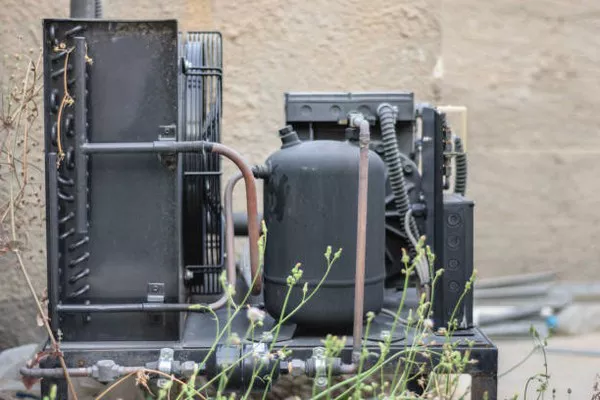In a world increasingly reliant on uninterrupted power supply, whole home generators have emerged as a crucial solution to combat power outages. These generators, also known as standby generators, provide homeowners with a seamless transition to an alternative power source during electrical grid failures. As more individuals and families invest in these backup power systems, a common question arises: How long do whole home generators last? In this article, we delve into the factors that influence the lifespan of these generators, maintenance practices to extend their longevity, and address some frequently asked questions about their durability.
Understanding Whole Home Generators
Whole home generators are robust electrical systems designed to automatically detect power outages and provide a continuous supply of electricity to an entire household. They are permanently installed outside homes and are typically fueled by natural gas or propane. Unlike portable generators, which require manual setup and fueling, whole home generators are wired directly into the home’s electrical system and can start within seconds of a power outage. This seamless transition ensures that essential appliances and systems, such as refrigeration, heating, cooling, and medical equipment, continue to function without interruption.
Factors Affecting Lifespan
The lifespan of a whole home generator depends on several key factors, including the quality of the generator itself, usage patterns, maintenance practices, and environmental conditions. Here’s a closer look at how each of these factors influences the longevity of these backup power systems:
1. Quality of the Generator:
The initial quality of the generator plays a significant role in determining its lifespan. High-quality generators with robust construction and reliable components tend to last longer than their cheaper counterparts. Investing in a reputable brand known for its durability can pay off in the long run.
2. Usage Patterns:
How frequently the generator is utilized affects its overall lifespan. If power outages occur frequently, leading to frequent generator activations, it can lead to more wear and tear. Conversely, generators that are rarely used might have longer lifespans due to reduced stress on their components.
3. Maintenance Practices:
Regular maintenance is crucial for extending the lifespan of a whole home generator. Routine inspections, oil and filter changes, coolant level checks, and testing the generator’s functionality ensure that it remains in optimal working condition. Neglecting maintenance can lead to premature breakdowns and reduced lifespan.
4. Environmental Conditions:
The environment in which the generator operates also impacts its longevity. Generators exposed to harsh weather conditions such as extreme heat, cold, humidity, or corrosive elements might experience accelerated wear. Proper installation, including placing the generator on a stable and elevated platform, can mitigate these effects.
Extending the Lifespan
While the eventual wear and tear of any mechanical system are inevitable, homeowners can take several proactive measures to extend the lifespan of their whole home generators:
1. Regular Maintenance:
Adhering to a scheduled maintenance routine recommended by the generator manufacturer is essential. This includes regular oil changes, filter replacements, and comprehensive system checks. Maintenance by qualified professionals ensures that any potential issues are identified and addressed promptly.
2. Exercise the Generator:
Running the generator for a short period every month, even when there’s no power outage, helps keep its components active and lubricated. This practice prevents fuel from becoming stale and ensures that the generator is ready to perform when needed.
3. Keep the Area Clean:
Regularly clean the area around the generator to prevent the accumulation of debris, leaves, and dirt. This promotes proper airflow and prevents overheating.
4. Invest in Professional Installation:
Proper installation is key to the generator’s longevity. Hiring a certified professional ensures that the generator is correctly connected to the home’s electrical system and properly grounded. It also guarantees that the generator is situated in a location that minimizes exposure to the elements.
5. Fuel Quality:
If the generator runs on fuel, ensure that the fuel source remains clean and uncontaminated. Fuel additives can help prevent the buildup of deposits that can affect the generator’s performance.
FAQs About Whole Home Generator Lifespan
1. Can I install a whole home generator myself?
Installing a whole home generator is a complex task that requires electrical and plumbing expertise. It’s recommended to hire a licensed professional who is familiar with local building codes and safety regulations to ensure a proper and safe installation.
2. Are whole home generators noisy?
While whole home generators do produce some noise, advancements in generator technology have led to quieter operation compared to older models. The noise level can vary based on the generator’s size, brand, and location.
3. Can I extend the generator’s lifespan through DIY maintenance?
While simple tasks like cleaning the area around the generator can be done by homeowners, most maintenance tasks require specialized knowledge and tools. DIY maintenance can void warranties and might not effectively address underlying issues.
4. What’s the typical warranty period for whole home generators?
Warranty periods for whole home generators vary by manufacturer and model. They generally range from 3 to 10 years. Some manufacturers also offer extended warranty options.
5. How do extreme temperatures affect generator lifespan?
Extreme temperatures, both hot and cold, can impact a generator’s components and overall performance. Generators exposed to extreme conditions might experience faster wear and require more frequent maintenance to ensure optimal functionality.
Conclusion
Whole home generators are invaluable investments for homeowners seeking reliable backup power solutions. Their lifespan depends on factors like quality, usage patterns, maintenance, and environmental conditions. With proper maintenance, regular servicing, and professional installation, homeowners can maximize the lifespan of their whole home generators, ensuring they provide uninterrupted power during critical moments for years to come.

